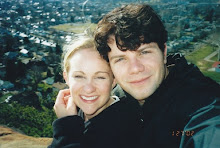In The Truth War John MacArthur purports to make the case against a 'new' movement within Evangelical Christianity that he sees as a threat to his version of orthodoxy or 'The Truth'. MacArthur, pastor of a southern California megachurch, believes that modern Evangelical Christianity is being led astray by a group of authors, theologians, and popular commentators who he views as a challenge to what he believes is the truth presented in the Bible. He believes that these thinkers, who he refers to as 'Emerging Christians' are poisoning American Evangelicalism with their pluralistic political views, references to modern popular culture, an ecumenical orientation, and especially their post-modern critique of traditionalist thinking. He goes so far as to suggest that these thinkers are evil promoters of apostasy and heretical thinking.
In opposing these thinkers, MacArthur intends to place himself in the tradition of Biblical prophetic voices calling for repentance among 'Bible believers'. However, rather than challenge people's thinking he simply asks them to submit to his ostensible authority and accept his interpretation of the Biblical texts. His challenge to the reader is not to question the status quo but rather to refrain from any sort of critical assessment of traditional Evangelical ecclesiastical authority and conventional fundamentalist thinking.
In a clear display of the feebleness of his own arguments, rather than engaging those he differs with in a meaningful discourse, MacArthur resorts to the use of desparaging ad hominem statements about their sincerity and the rigor with which they intellectually engage their Christian faith in terms of their American Evangelical heritage. In doing so, MacArthur fails to see that his 'opponents' have much more in common with his view of the world than they have in opposition to it. I would even suggest that the thinking of those he opposes is for the most part fairly traditional, albeit containing elements of pluralism and egalitarian thought that are absent from MacArthur’s thinking.
Like many fundamentalist arguments, MacArthur's discussion is fraught with contradictions, exaggerations, and tautological reasoning. While I believe he is correct in stating that objective truth exists, he fails to acknowledge that in many cases, particularly when considering ideas that fall outside the realm of empirical observation, we are incapable of knowing with any degree of certainty what that objective truth is. In his rejection of post-modern critical analysis, he denies the role of the reader in scriptural interpretation. According to MacArthur, a straightforward reading of the (English) Bible will by default lead to an understanding of truth that is self-evident and consistent with his own understanding. Such thinking inevitably blinds him to the fact that even in a 'plain-sense' reading of any text the reader brings their own understanding of the language, biases and prejudices, and conceptualizations of vague ideas that have no objective reference point.
Given MacArthur's (and his intended audience of like-minded individuals’) belief that 'The Truth' is self-evident, there is surprisingly little discussion in the book regarding what his idea of 'The Truth' actually is. Presumably, he deals with his own version of the truth in more depth elsewhere, assuming more depth is even possible. By presenting his own reading of Biblical texts as pure of bias, contamination, or interpretation MacArthur demonstrates an arrogance that makes it difficult for any thoughtful person take him seriously.
Wednesday, December 3, 2008
Subscribe to:
Post Comments (Atom)













No comments:
Post a Comment